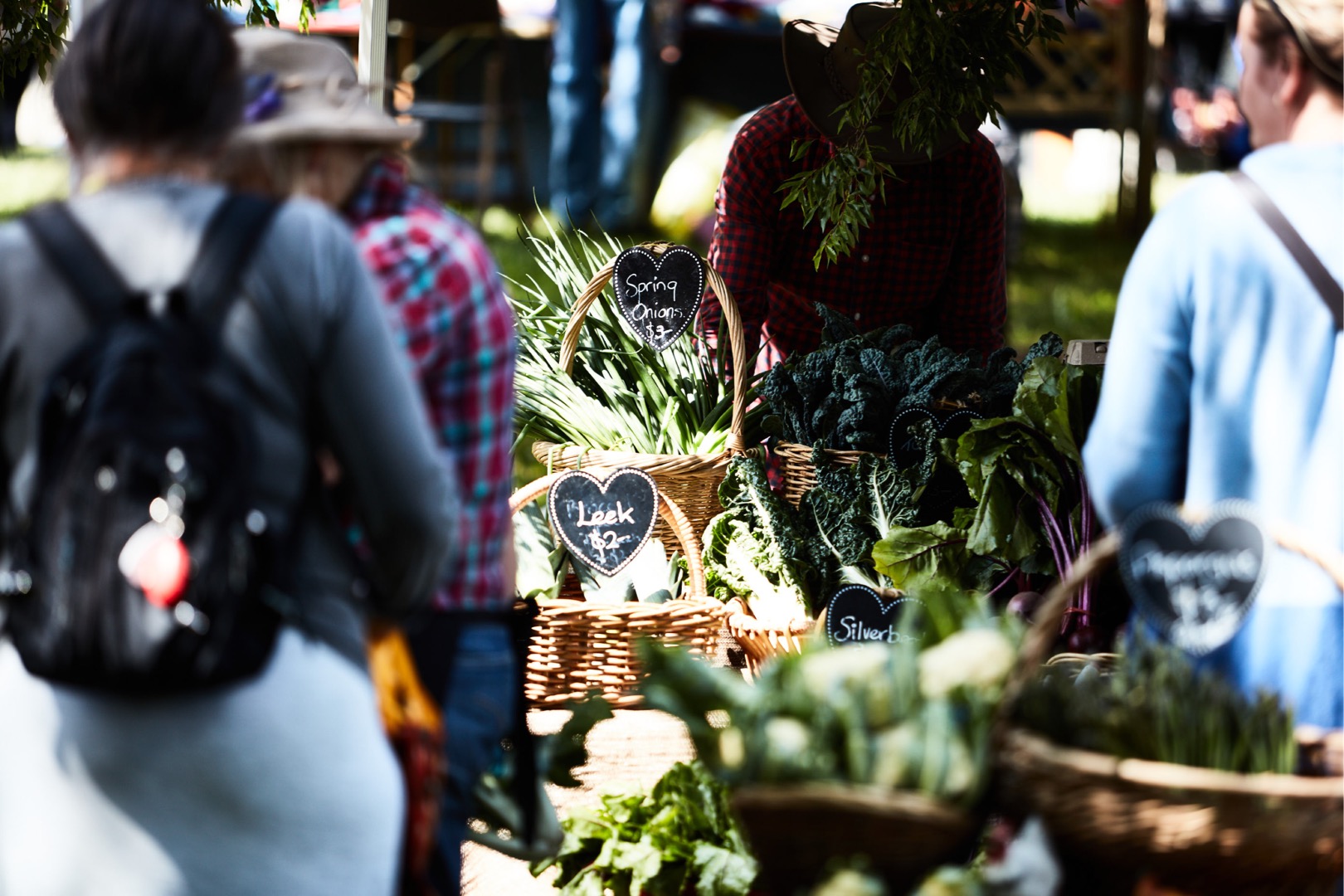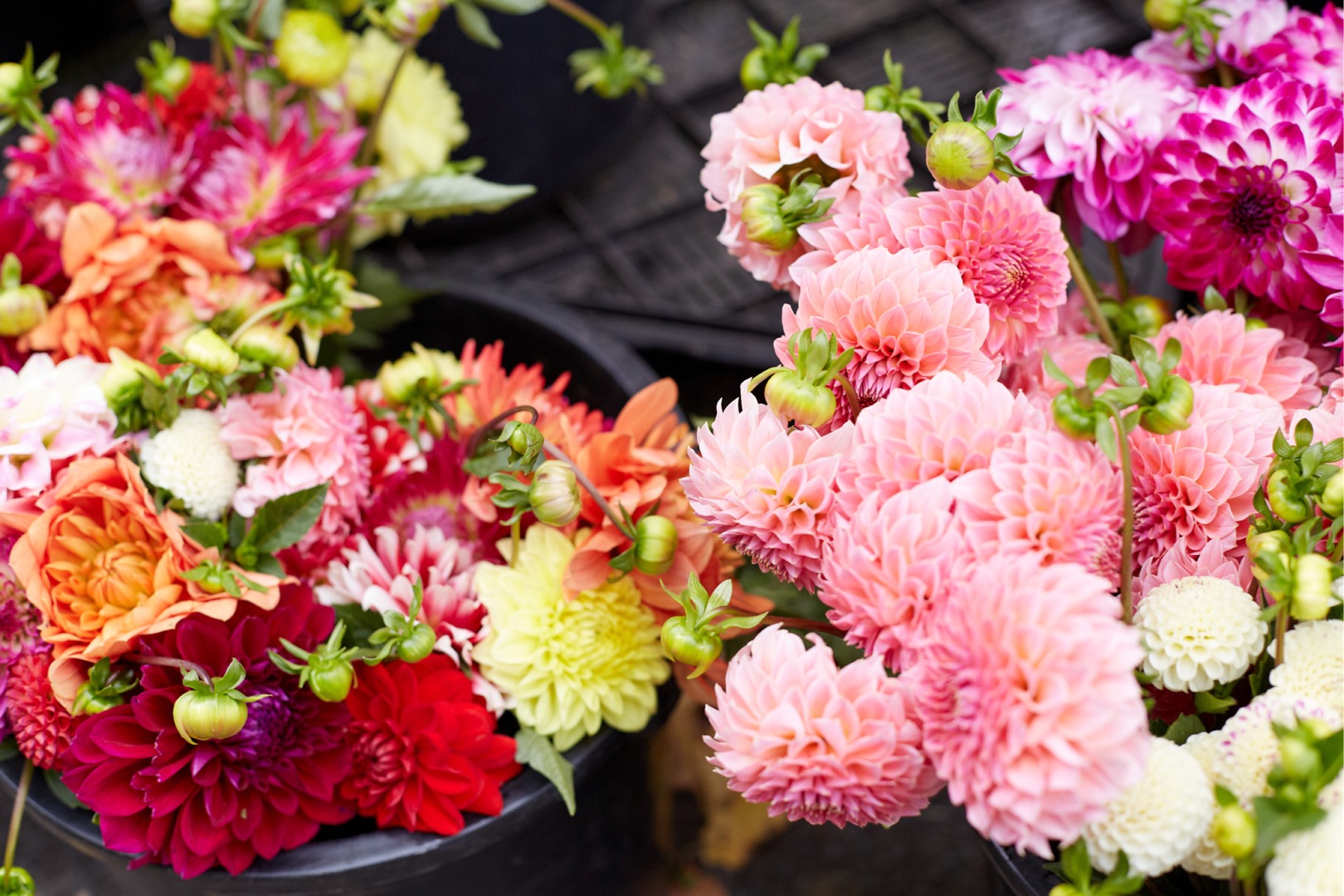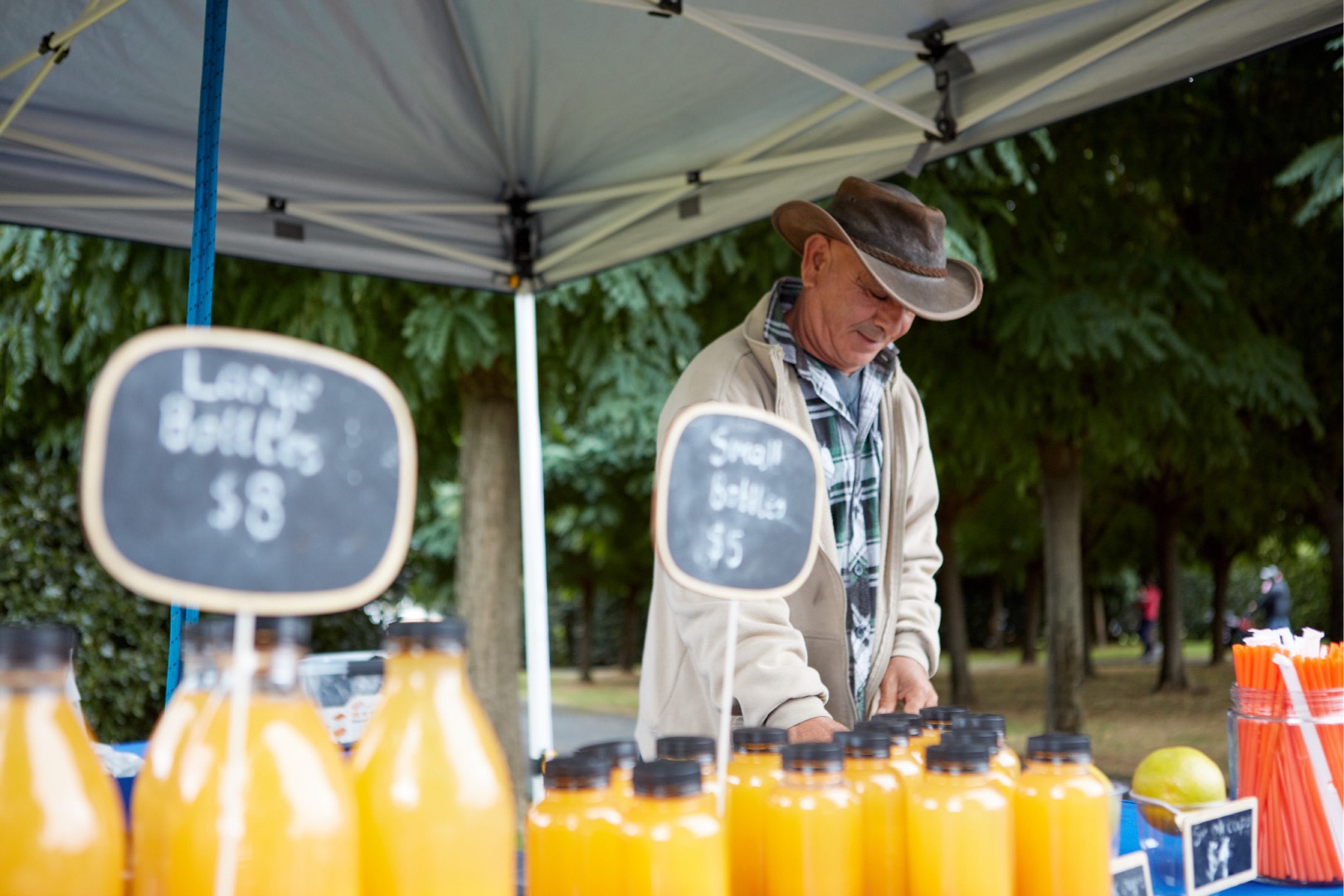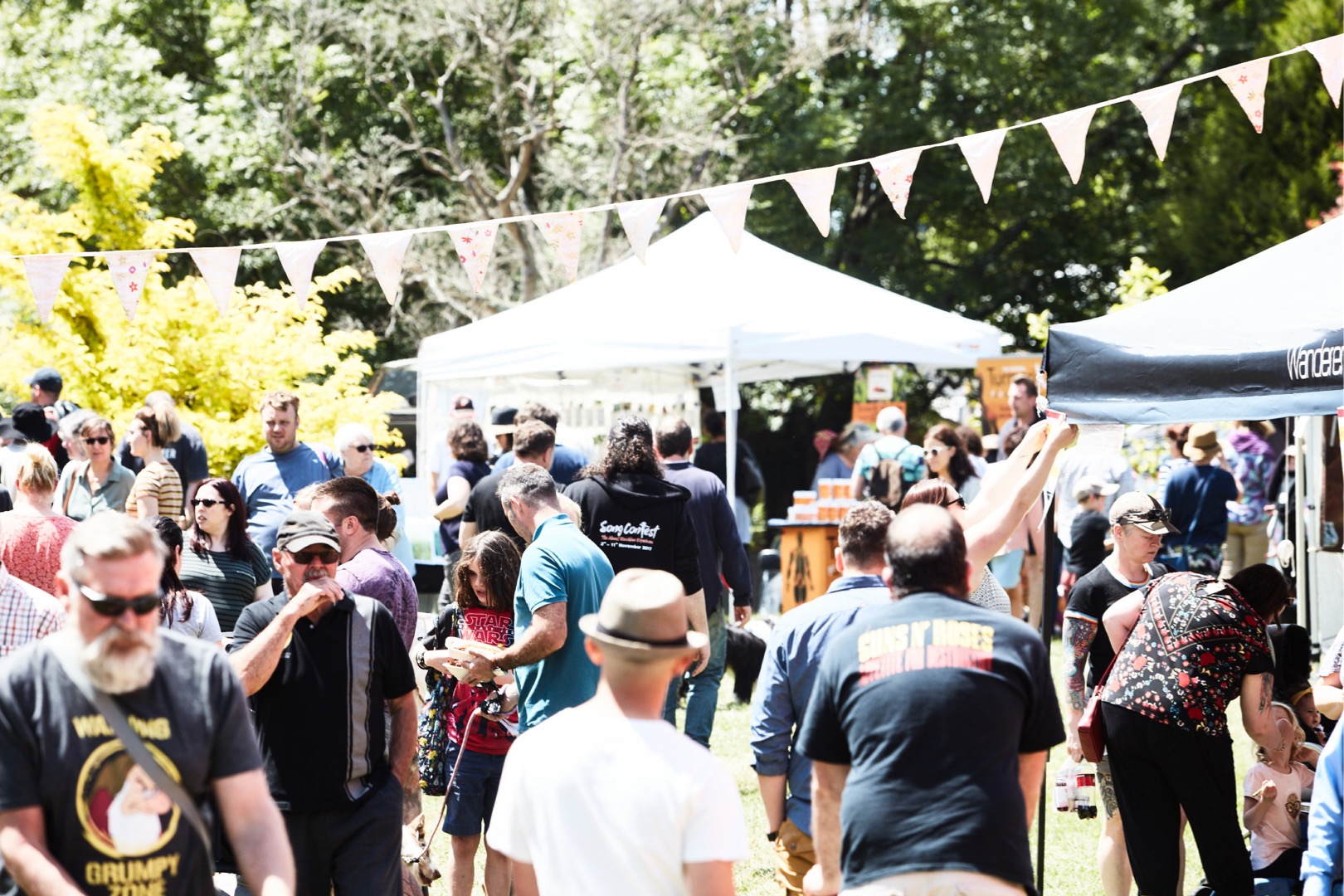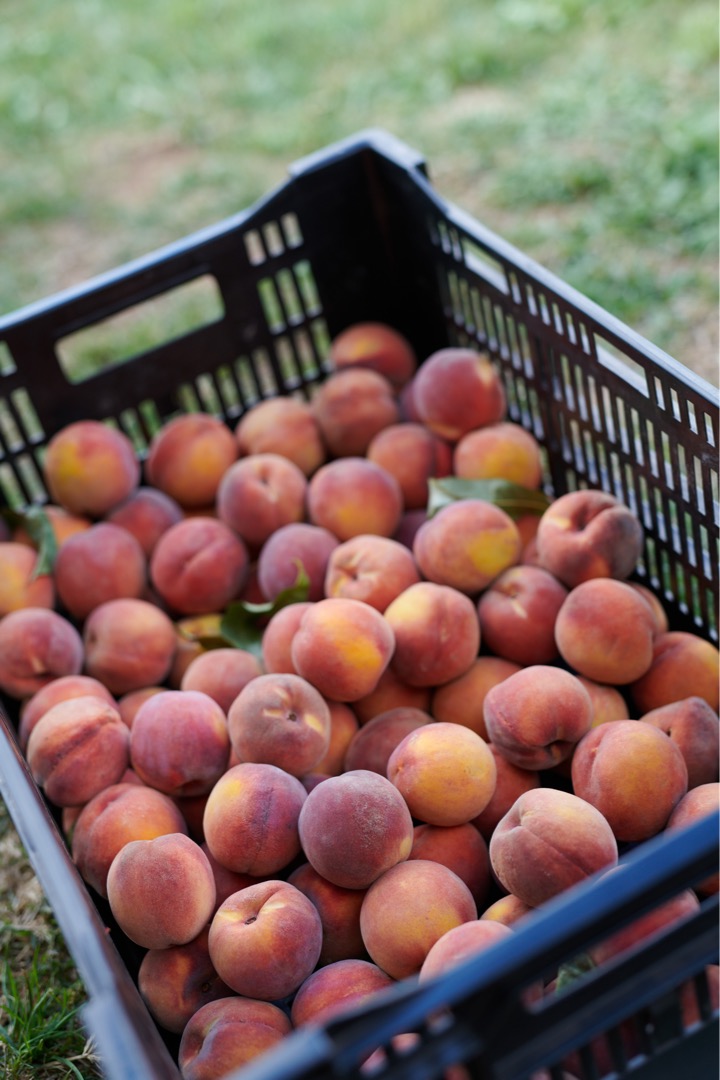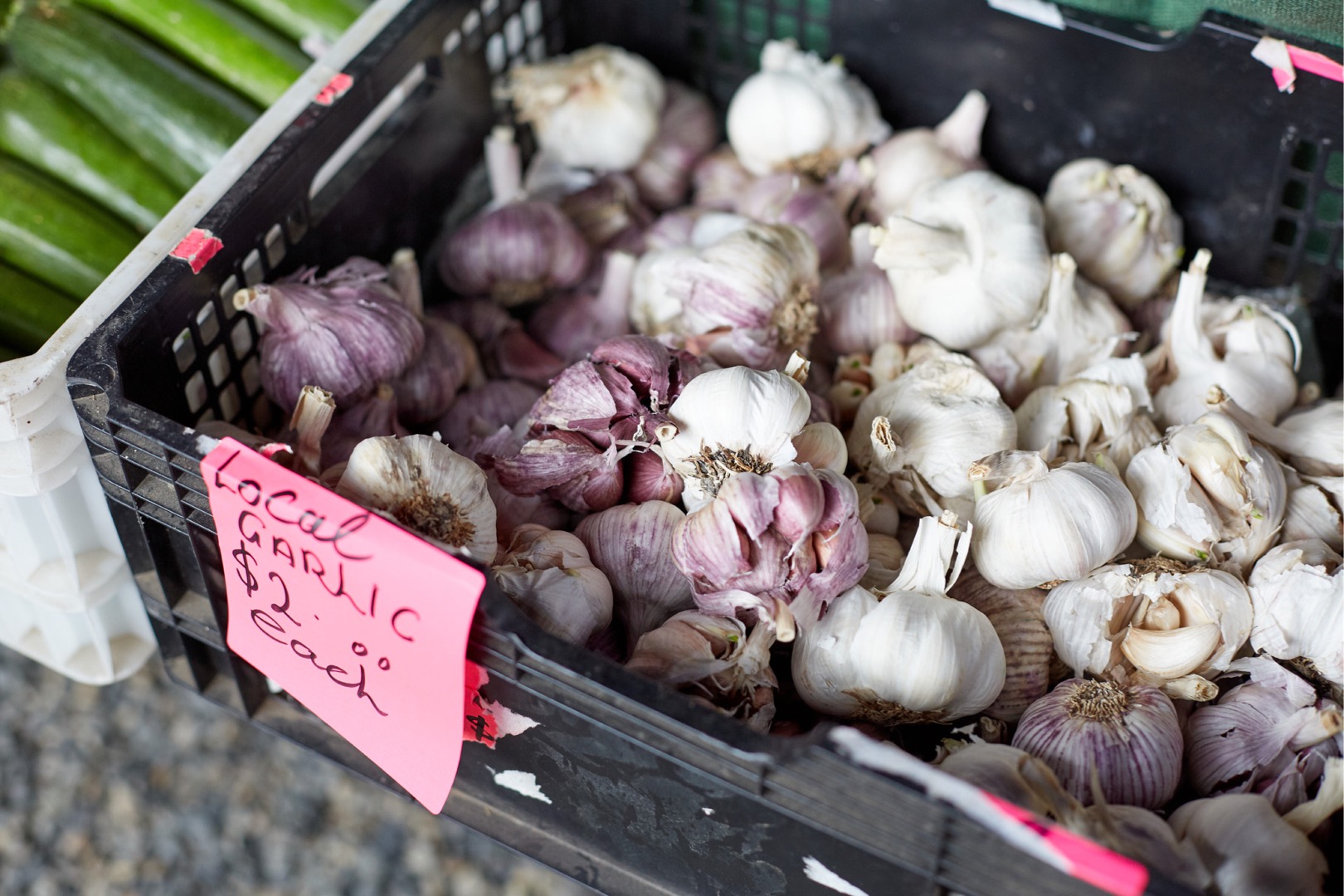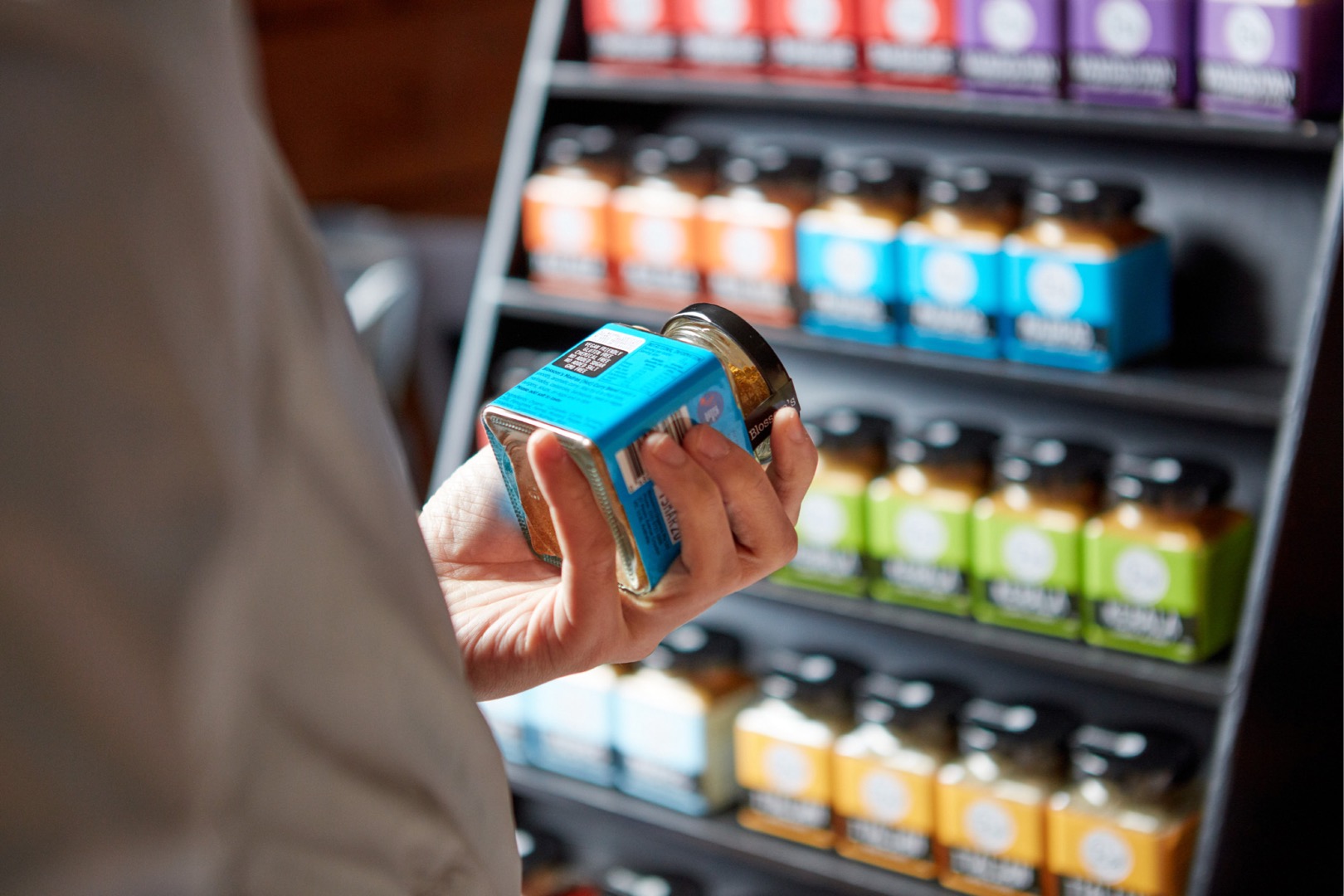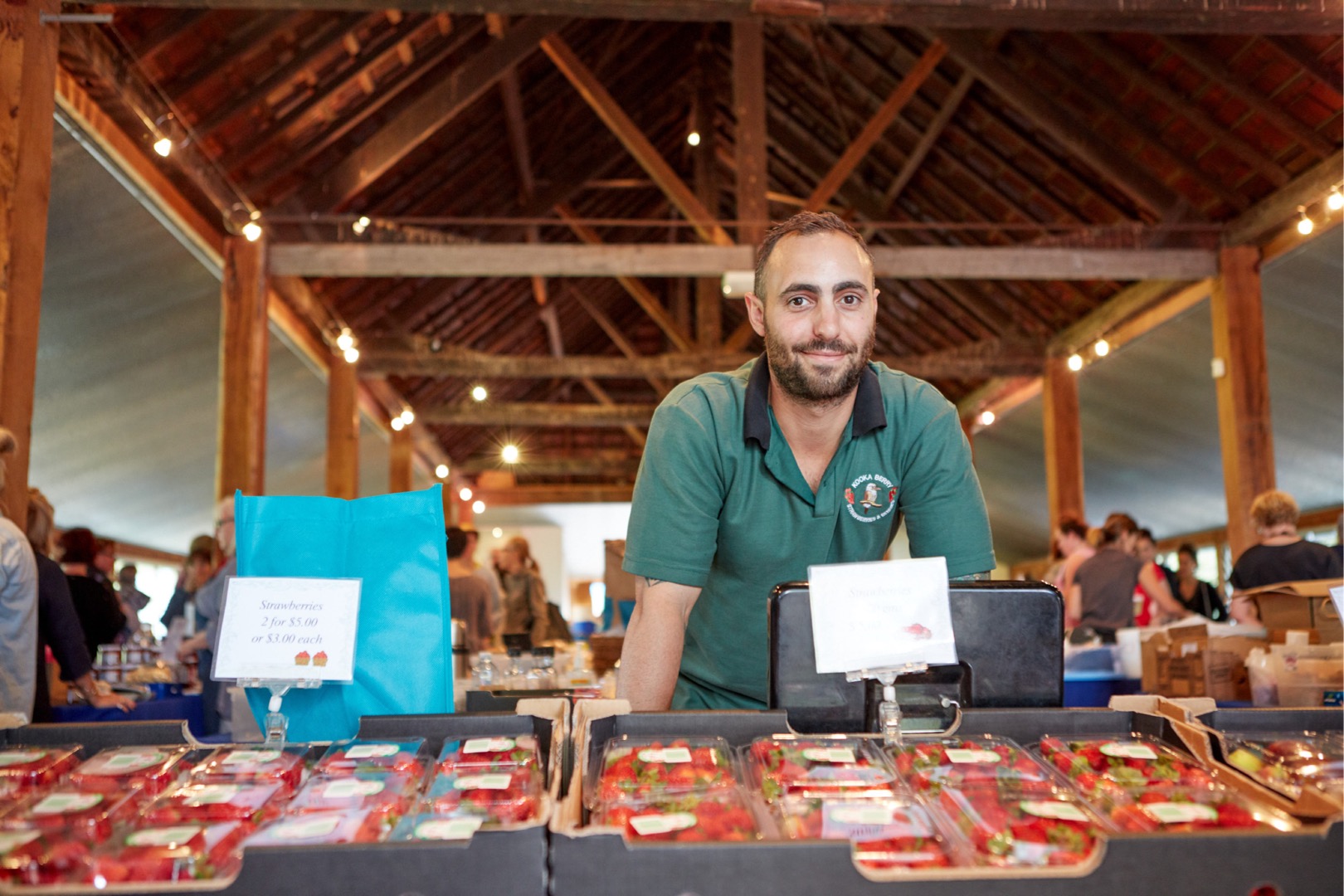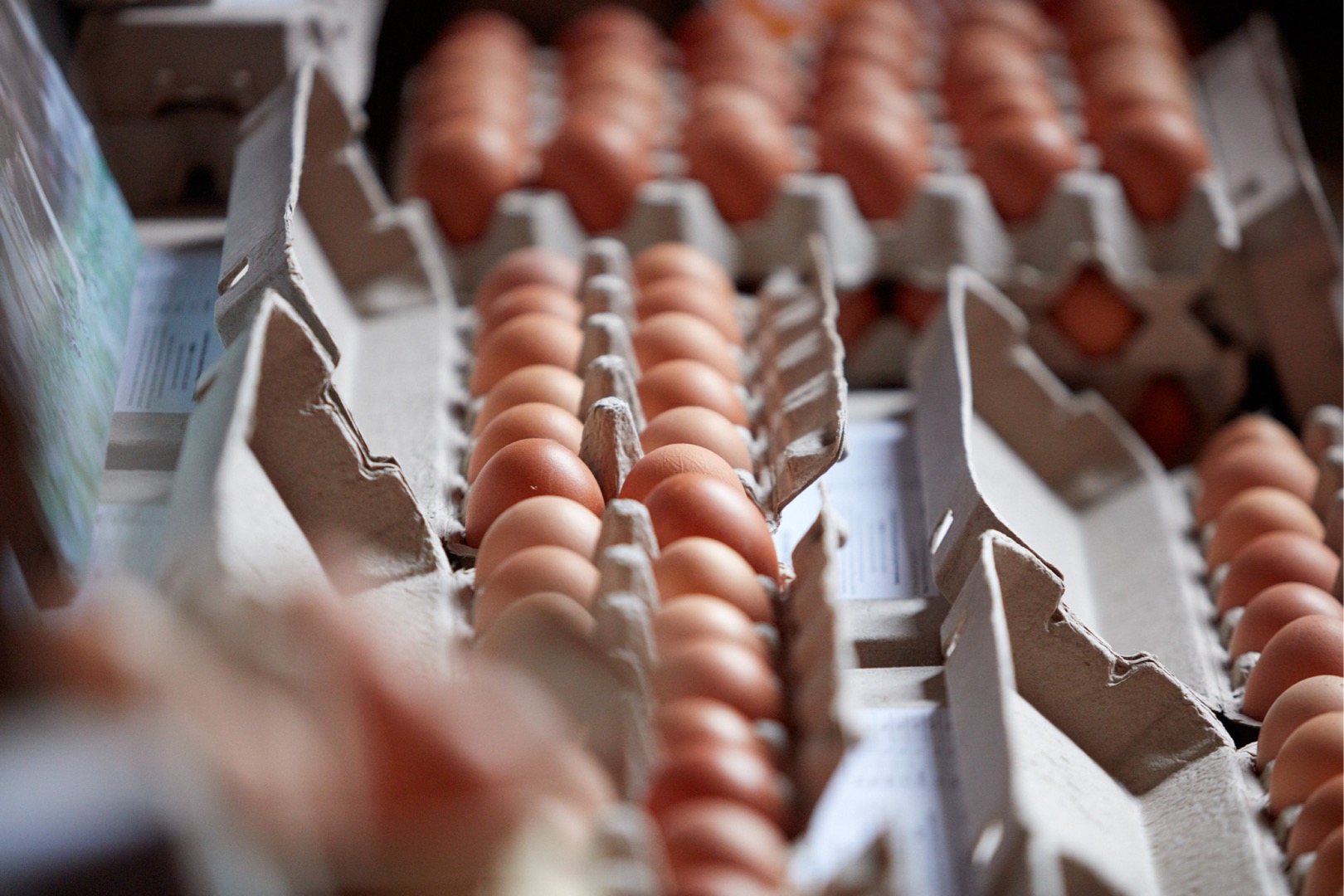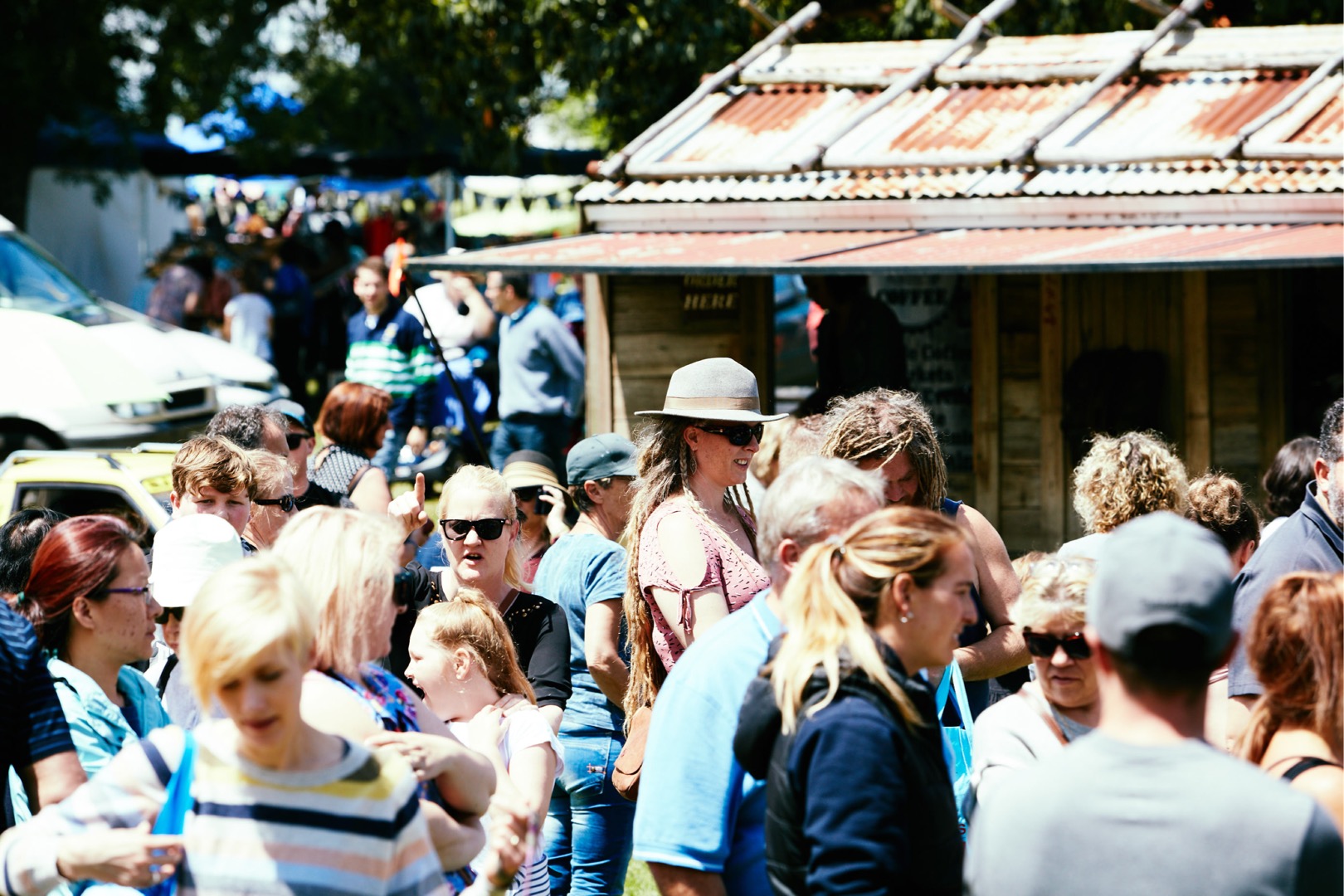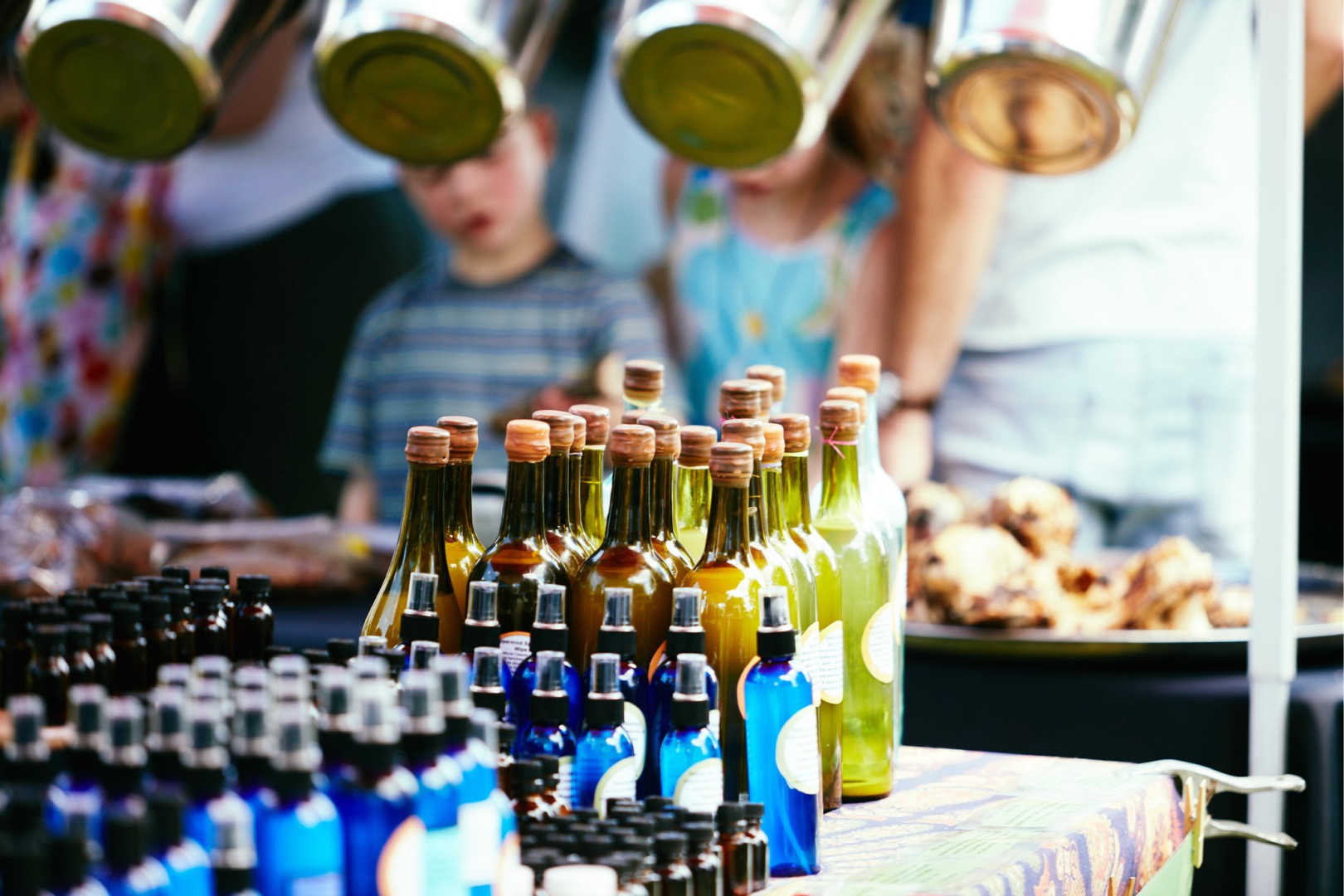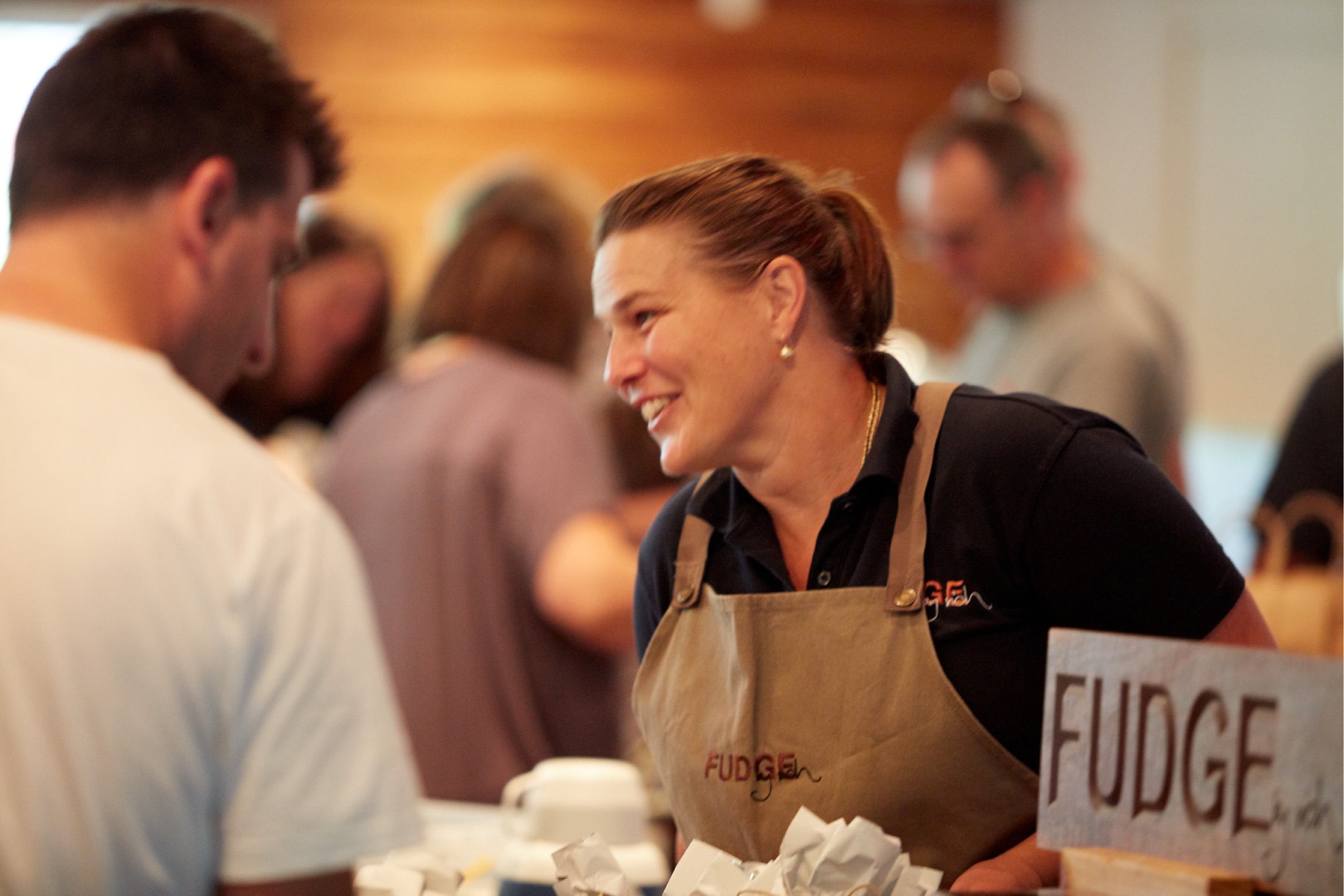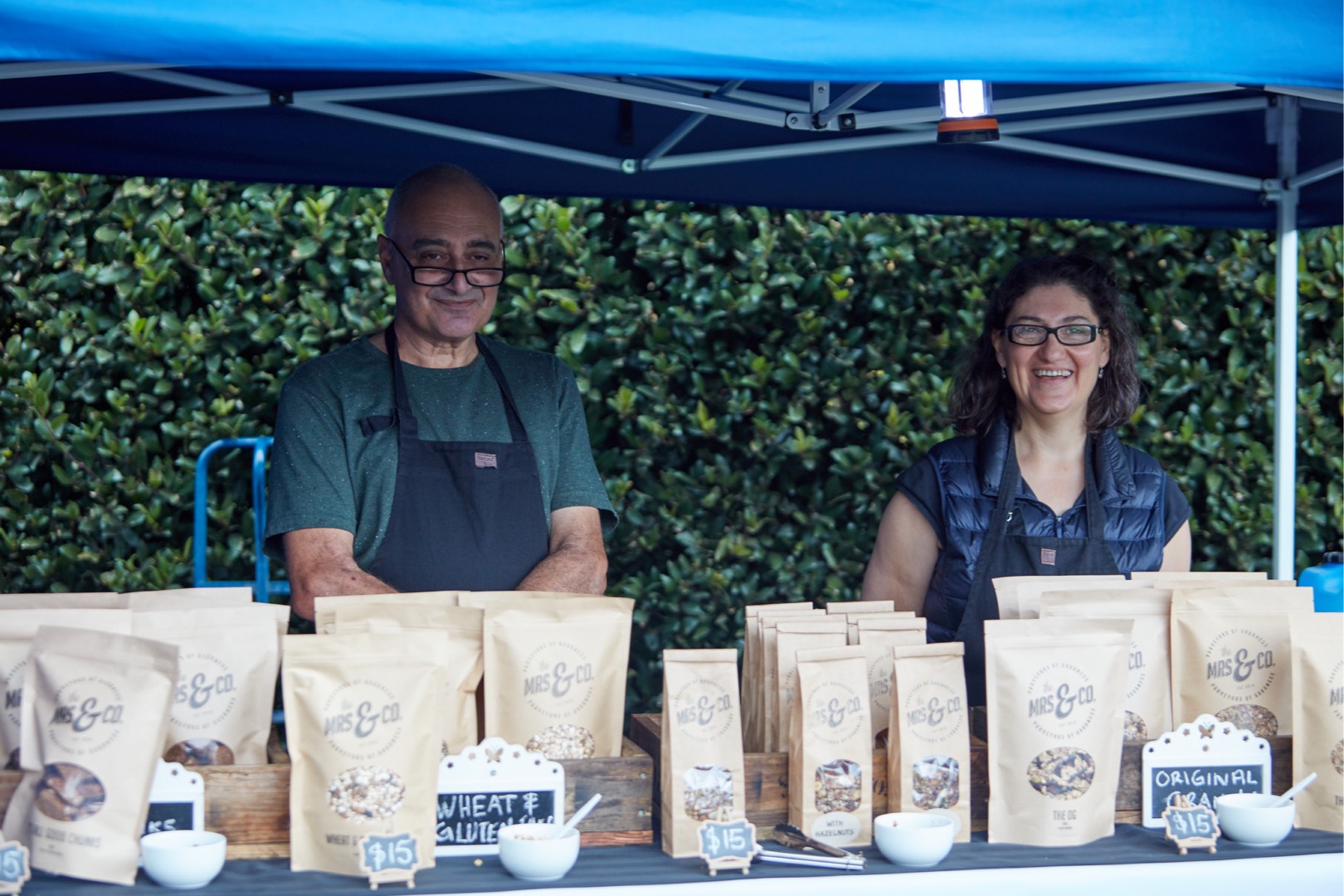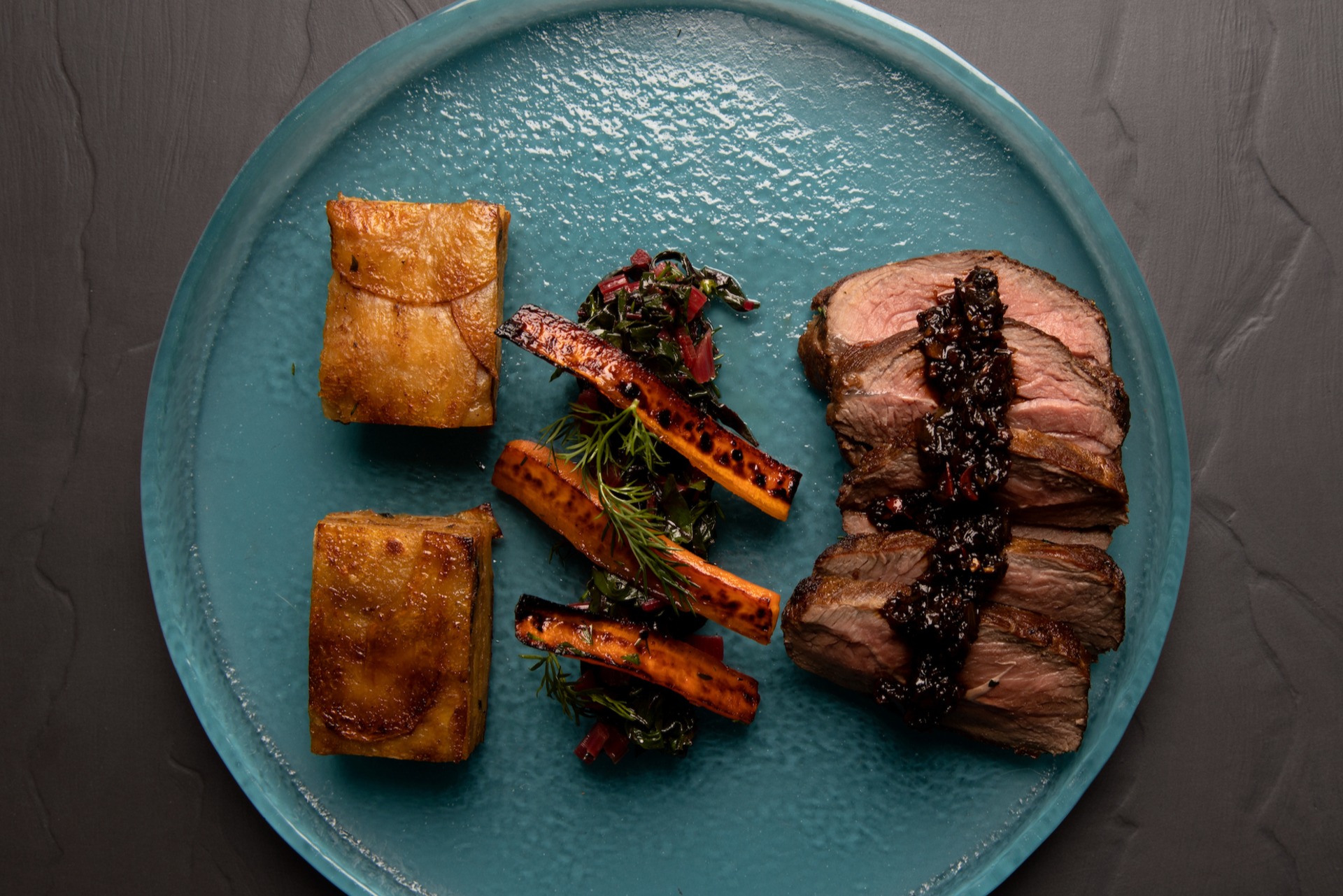Words by Richard Cornish
Chris Hains stands in the middle of the Castlemaine Farmers Market. Around him are stalls stocked with fresh fruit and vegetables, lamb, pork, goat, cereals, cheese, nuts, oil and other fresh produce. ‘We have no supply issue here at the farmers market,’ he says.
Chris is the manager of the Castlemaine and Bendigo Farmers’ Markets and sits on the board of Victorian Farmers’ Markets Association. In the light of recent empty shelves in supermarkets he and his team posted images of trestle tables groaning with freshly picked bounty to highlight the fact that farmers’ markets and other small and diverse food distribution systems have not been affected by COVID. The spread of the highly contagious omicron COVID virus has meant staff in large food production facilities, distribution centres, transport businesses and supermarkets themselves have been home recovering or isolating as close contacts.
‘We have a food supply system that is organised around a small number of stakeholders, such as supermarkets and fast food businesses with labour hire companies sitting behind them,’ says Dr. Kelly Donati, Senior Lecturer Food Systems and Gastronomy William Angliss Institute.
‘It is an unjust and inflexible system based on a casualised workforce. When it is confronted with problems beyond its control – like a pandemic or natural disaster it cracks under pressure,’ she explains.
Dr. Kelly points to the Brisbane floods when food supply through supermarkets failed yet smaller suppliers could make it through the flooded melee to feed people. ‘We need to have a more diverse food distribution system that includes more local green grocers, community supported agriculture, veggie box schemes, and of course, farmers’ markets,’ says Kelly. ‘They are responsive to change and rejig their businesses rapidly and constantly. There has been a big shift to these during COVID and more people are using these diverse systems.’
‘We are making all our markets weekly,’ says Miranda Sharp from Melbourne Farmers’ Market. ‘It is important for food sovereignty (to have a) network of alternative food systems. So it was obvious that we had to open Abbottsford and Carlton farmers markets weekly,’ she says. ‘They have fallen in line with our Alphington and Coburg weekly markets. It brings certainty to the local community that there will be a market every week and farmers have the certainty of weekly distribution of their produce.’ Abbottsford and Carlton farmers’ markets will run weekly from February.
Back in Castlemaine Chris points out to one of the stallholders, Colin from Blackwood Orchards in Harcourt. ‘He picked those cherries early this morning, put them on the back of his ute and will sell out in a few hours,’ says Chris. ‘That is 10km of food miles and the cherries are picked for ripeness, and not so they can sit in a truck and be driven a 1000 km from Young in NSW, stored in a coolstore and then sit on a supermarket shelf.’
When asked about the idea that farmers’ markets are more costly than supermarkets, Chris Googles the price of cherries. ‘Six dollars and fifty cents for 300g at the supermarket,’ says Chris. ‘Our mate Colin sells them for $14 a kilogram in a paper bag. Fruit and veg in season is cheaper, tastier and will last longer if you buy from a farmers’ market over the supermarket.’
When it comes to meat and chicken Chris says that small farmers can’t compete on the economy of scale, but he argues that meat from an ethically raised flock or herd is better for the animals, the land and for the taste and texture of the final product. ‘That said, COVID has ripped through the abattoirs and really affected their capacity. The smaller beef and lamb farmers are the first to get bumped so some of our stallholders have been affected to a degree. But there is still plenty of fresh food to fill the fridge not just in Bendigo or Castlemaine but all the other farmers markets around the state.’
